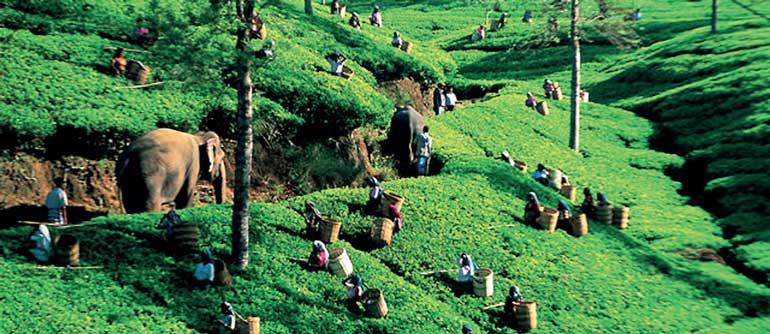Monday Feb 16, 2026
Monday Feb 16, 2026
Friday, 4 August 2017 00:00 - - {{hitsCtrl.values.hits}}
 Failure to manage, adapt and transform what the British left us 70 years ago has made Sri Lanka still a vulnerable economy struggling to come out of poverty and join the 21st century new age prosperity, when we have all what we need to be so. However, our regional neighbours like Singapore and Hong Kong have joined the global value chains to maximise on the good things the colonisation had left behind and have become major players and winners in the world.
Failure to manage, adapt and transform what the British left us 70 years ago has made Sri Lanka still a vulnerable economy struggling to come out of poverty and join the 21st century new age prosperity, when we have all what we need to be so. However, our regional neighbours like Singapore and Hong Kong have joined the global value chains to maximise on the good things the colonisation had left behind and have become major players and winners in the world.
In Sri Lanka may it be the ports, railways or the tea plantations, we have had very little transformation as most post-independent governments have failed to keep up pace on policy and reforms in a changing and a globalised world and embrace to change for the better.
The reasons for the downfall are many, on one side the politically led trade unions, protectionist business clubs, divided self-centred  industrialists and on the other hand an education system which has not geared itself to cultivate change, innovation and R& D.
industrialists and on the other hand an education system which has not geared itself to cultivate change, innovation and R& D.
Probably President J.R. Jayawardena and his team in 1977 took the only radical change in making a country an open economy, but due to many factors including the war, we have not managed to make that policy of a first open economy in South Asia to be a game changer for modern Sri Lanka.
The tea industry in Sri Lanka is celebrating 150 years in 2017 and many celebrations have been organised to mark the occasion. Indeed, Ceylon Tea has made a good name in the world. But in my mind, a few questions are posed and troubling. Have we understood our strengths? Did we learn lessons from the British? Have we made the maximum out of an evolving industry? Certainly, one thing is for sure, we are quite slow in reforms and lethargic in attitudes as a whole.
What is the lesson the British and the other colonial nations have taught us? Among many good and bad lessons, if one asks me the most important positive thing that comes to my mind is the importance of learning to trade and becoming a trading nation as the British did. Not only the colonial nations but ancient kings of this country too new this as history shows us being the hub for trading for centuries.
But our modern day tea industry payers have certainly embraced one bad habit that the British have taught us, that is the concept of “divide and rule” and boy aren’t they divided in policy framework and reforms and created the best hand-out the politicians want to thrive through the disunited environment of the industry.
They have made a soup out the industry by mixing priorities and fighting over brand building, value addition, trading and backward integration, etc. Failing to build the “tea eco system” to make the island the best global hub for tea in terms of total solutions, and opening of multi-level operations, the industry is going on the same circle as a circus for decades. Thanks to this divided attitude and lack of consensus we see never-ending TV debates whilst Government is saying ‘get your house in order and tell us what to do?’
In my opinion this a tragedy as our Middle East friends are thriving with the UAE tea hub and all our customers are building regional hubs and brands and getting the best out of our tea bushes whilst the local growers are finding it difficult to plant new tea bushes and pay for the workers as the industry is ever in crisis mode.
Certainly most of our companies have not joined the global value chain as our laws are restrictive and have given way to protectionists to thrive; even when the country has developed a new commercial hub regulation, these negative minded people are not keen to look at offering innovative solutions through the hub act where brand protection, quality protection can be achieved whilst allowing global tea brands to work in Sri Lanka to source, pack and value add, and develop the ecosystem for the sector that can transform this country into a meaningful tea hub of the world. If one googles the world tea industry the amount of creativity other countries who don’t have tea plantations have done, one can understand the way we have progressed for 150 years.
As such whilst we celebrate Ceylon T150, the new generation of tea exporters and traders may wonder if they should be over joyed or should you shed a tear? May be T150 should be the game changer like T20 in cricket if prosperity to all is the slogan.